Have you ever wondered about the intricacies of election law compliance? Navigating the guidelines can feel daunting, but it's crucial for a fair democratic process. In this article, we'll break down essential steps and provide a practical letter template to help ensure your organization meets all necessary regulations. So, stick around as we unpack the details and invite you to read more!
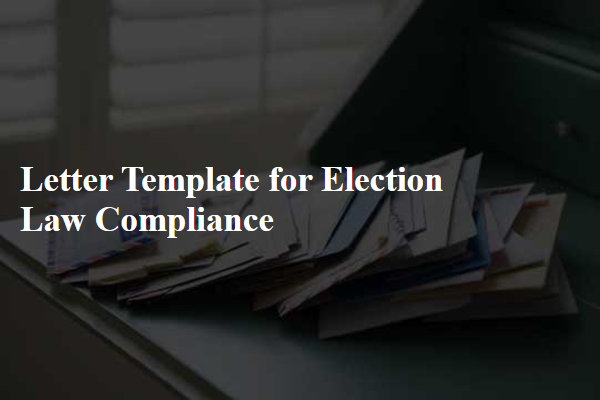
Legal framework references
Election law compliance ensures the integrity of democratic processes within jurisdictions such as the United States, which adheres to specific regulations outlined in the Help America Vote Act (HAVA) of 2002 and the National Voter Registration Act (NVRA) of 1993. Compliance involves adhering to state-specific statutes and federal regulations, ensuring accurate voter registration (over 150 million registered voters as of 2023), maintaining security protocols for electronic voting machines, and conducting transparent election audits. Local election officials (specific offices in counties like Los Angeles or Cook County) are responsible for implementing these legal frameworks, which also include guidelines set forth by the Federal Election Commission (FEC) ensuring electoral fairness and preventing voter fraud. Ensuring compliance through regular training and updates on the legal landscape enhances public confidence in electoral processes, fostering civic engagement and participation in future elections.
Transparency and accountability
Election law compliance ensures transparency and accountability in democratic processes. Election regulations mandate stringent guidelines for campaign financing, voter registration, and poll monitoring to uphold integrity during polls. Publicly accessible records (available through official state or federal election offices) allow scrutiny of campaign funds, ensuring contributions do not exceed specified limits. Voter ID laws, enforced in various jurisdictions, aim to prevent fraud while ensuring eligible voters' participation. Additionally, independent electoral commissions conduct audits and monitor election procedures, reinforcing public confidence in the electoral outcome. Compliance with these laws fosters trust among citizens, empowering them to engage in the political process effectively.
Election timeline adherence
Election law compliance requires strict adherence to established timelines, crucial for ensuring fair and transparent electoral processes. For instance, the filing deadlines for candidate nominations typically occur 60 days before the election date, as mandated by entities such as the Federal Election Commission (FEC). In major events, such as the United States presidential elections occurring every four years on the first Tuesday after the first Monday in November, it is essential that states adhere to specific deadlines for voter registration, absentee ballot requests, and the publication of election materials. Failure to comply with these critical timelines can result in disqualification of candidates, disenfranchisement of voters, and potential legal challenges. Ensuring that all stakeholders, including election officials, candidates, and voters, are informed and in compliance with these timelines is paramount for upholding the integrity of the electoral system.
Financial disclosure requirements
Financial disclosure requirements in election law mandate candidates and political committees to provide detailed accounts of campaign finances, including contributions and expenditures. In the United States, the Federal Election Commission (FEC) enforces these regulations, requiring candidates to file Financial Disclosure Reports (FDRs) quarterly or annually, depending on the election cycle. Key financial documents must disclose sources of funding, such as individual donations exceeding $200, along with overall campaign spending reports detailing uses like advertisements, event costs, and staff salaries. Every state may have unique rules on disclosure thresholds and filing deadlines, impacting local and state elections significantly. Non-compliance may lead to penalties, including fines and potential legal action, thus underscoring the importance of accurate and timely reporting in accordance with the Federal Election Campaign Act of 1971.
Communication protocols
Election law compliance mandates strict communication protocols to ensure integrity during the electoral process. The Federal Election Commission (FEC) established guidelines outlining permissible actions during campaigning, prohibiting deceptive practices aimed at voters, and ensuring accurate reporting of election-related expenditures and contributions. Clear documentation should be maintained to track communications with various stakeholders, including election officials, political entities, and voters, especially during key events like early voting and Election Day on November 8. Additionally, digital platforms must adhere to transparency regulations by disclosing the sources of campaign advertisements to uphold accountability. Non-compliance risks penalties, including fines and potential disqualification of candidates, emphasizing the importance of meticulous adherence to these protocols.

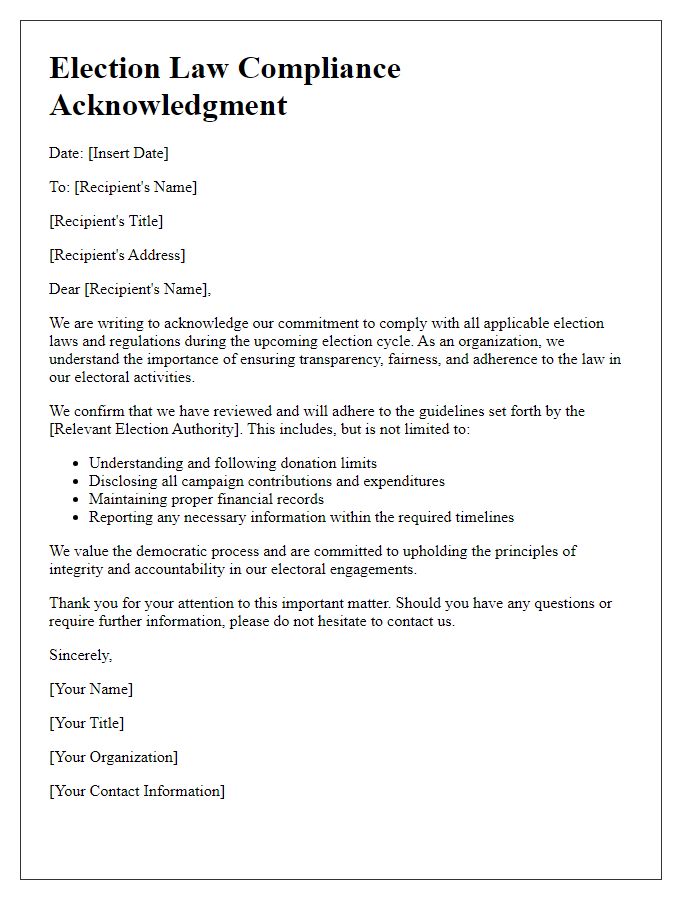
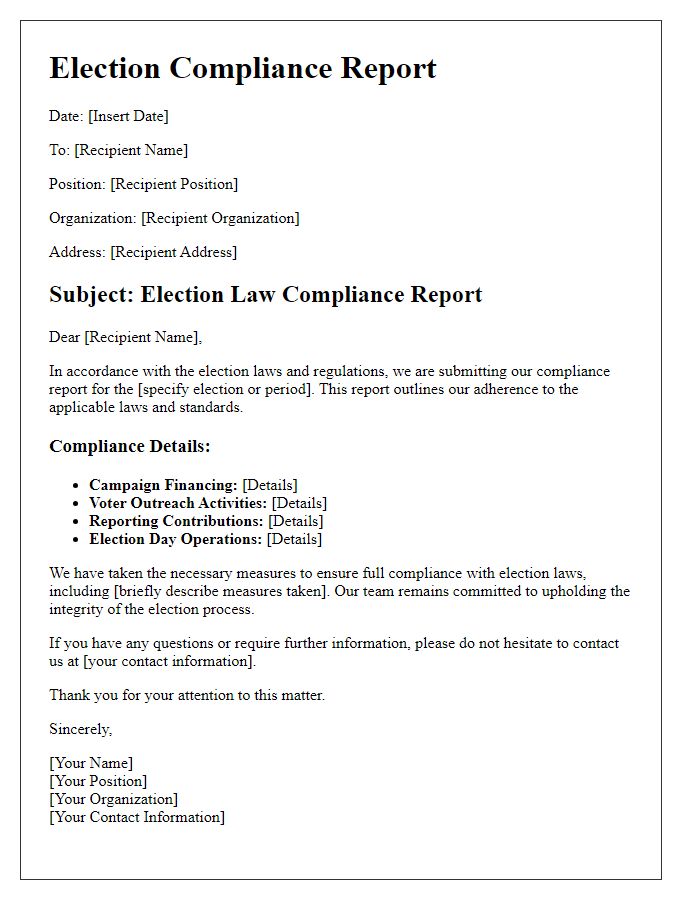
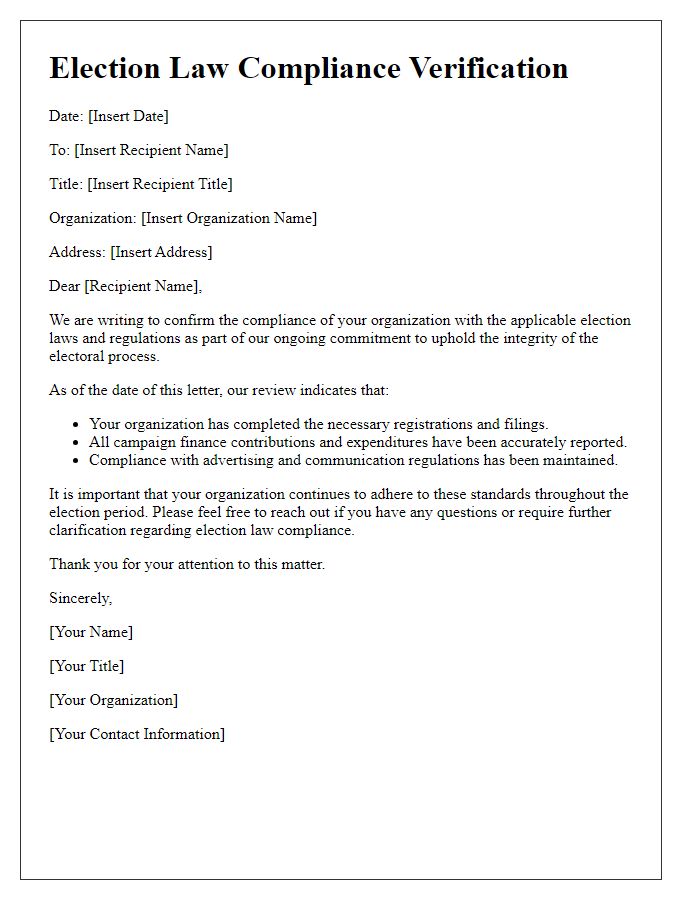
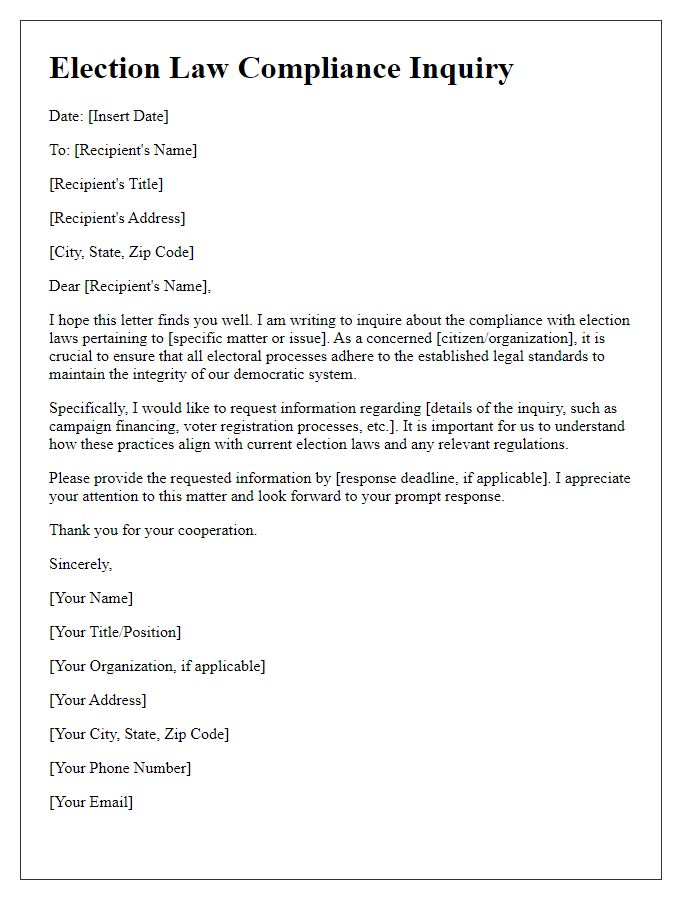
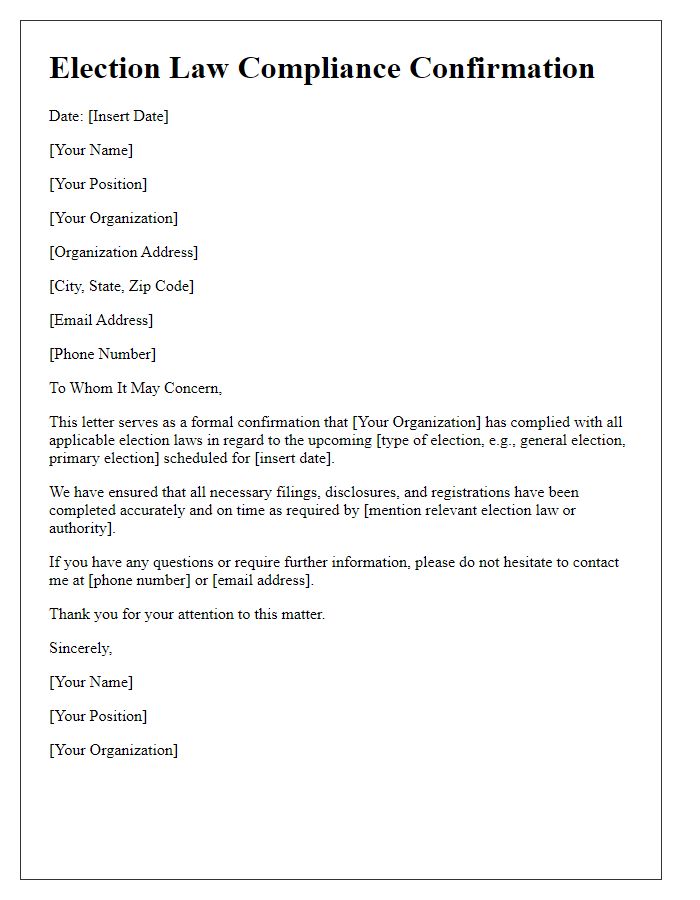
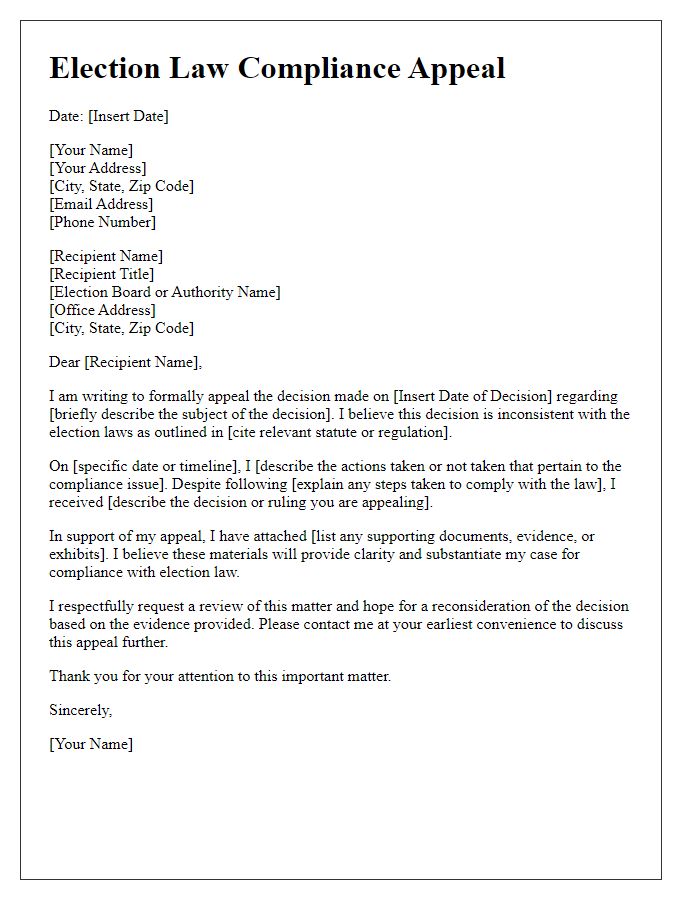
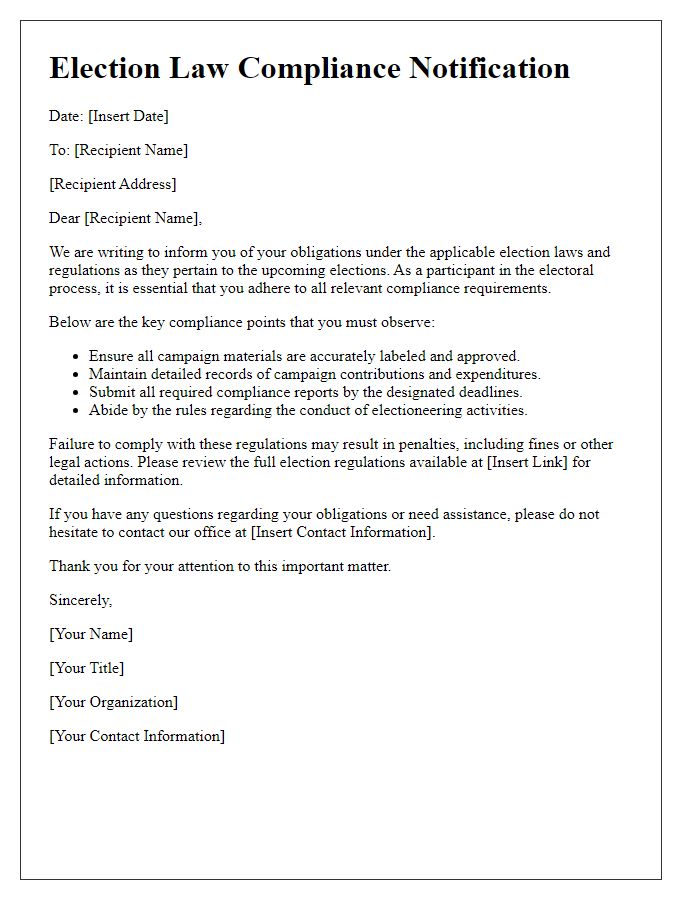
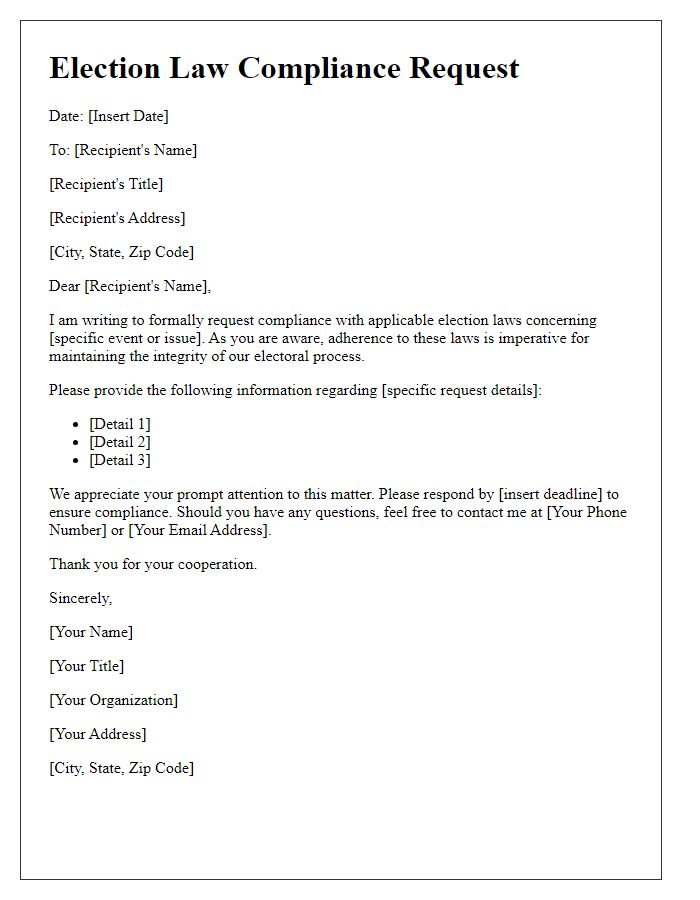
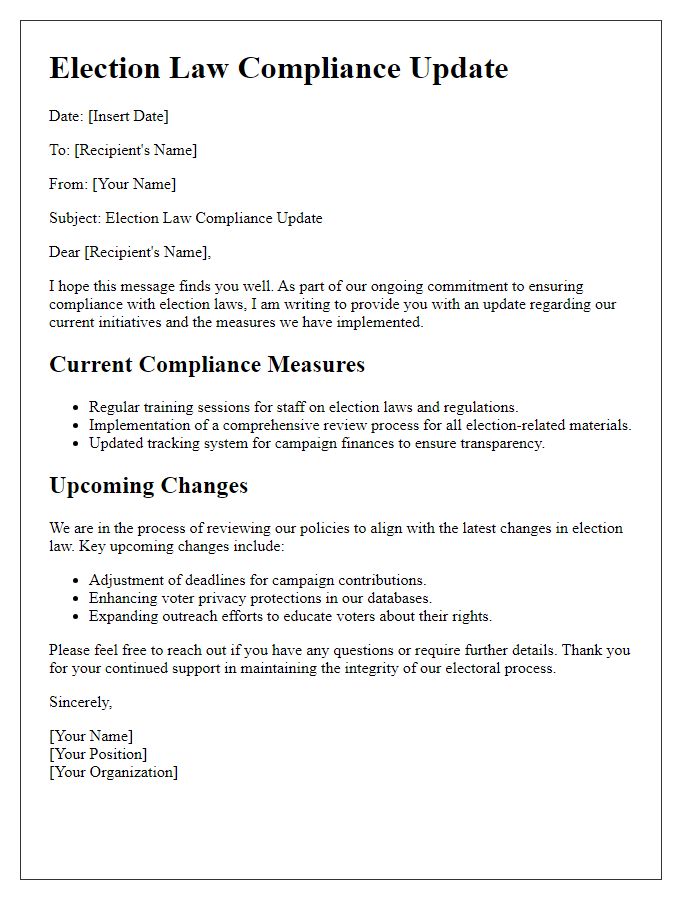
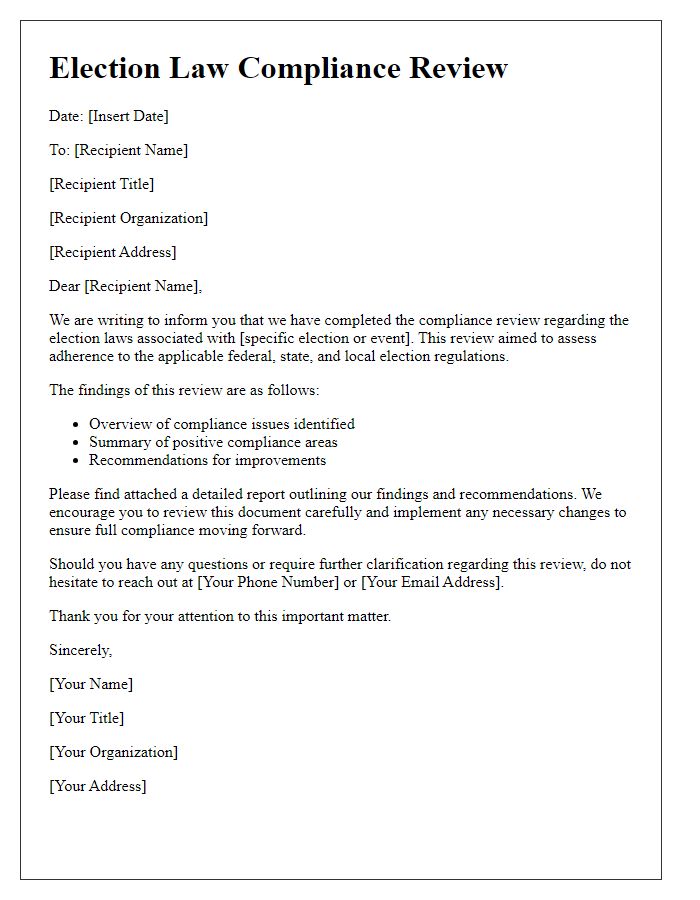


Comments